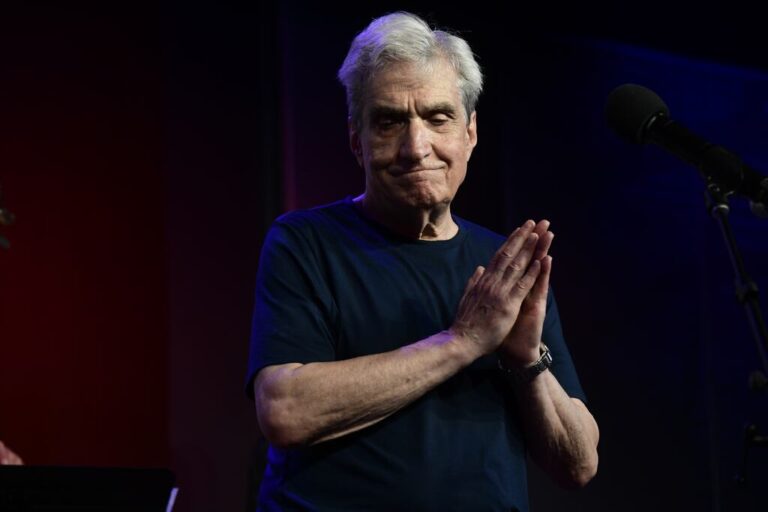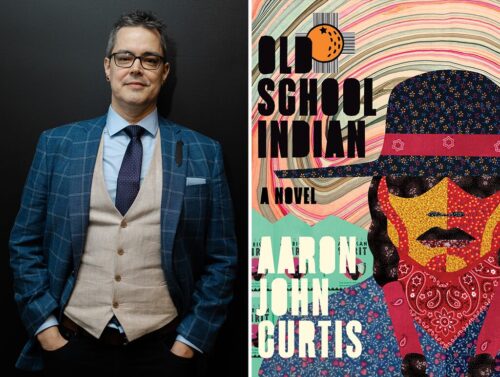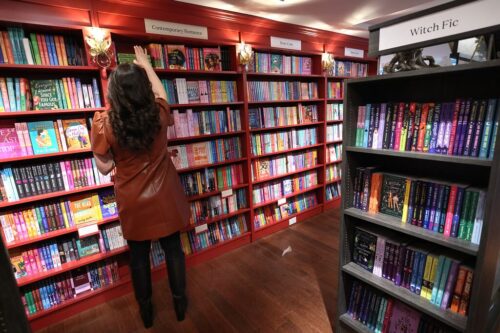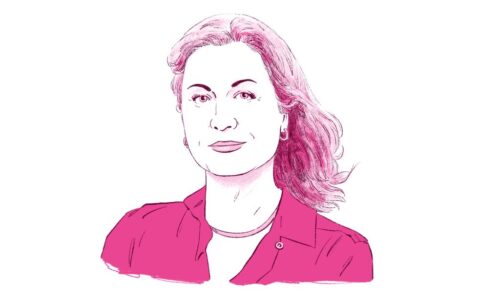When I reach Robert Pinsky at his Cambridge home, it’s the day before he’s teaching his last MFA seminar at Boston University — and right off the bat, he warns me:
“If you wanted me to say something coherent about how it feels to be retiring, I don’t think I can.”
He ends up being wrong about that.
Yes, after some 36 years teaching at Boston University, the former three-term U.S. Poet Laureate is going out in style: with a public poetry-filled retirement celebration May 1 on the 17th floor of BU’s “Jenga Building” — aka the Duan Family Center for Computing & Data Sciences.
If you’re reading this, you’re invited to the free party, which features Pinsky’s reading, signing, a book sale, a reception with food and drink, and screening of “Favorite Poem Project” — which Pinsky founded in 1998. The first 130 people will score entry at 665 Comm Ave. Doors 6 p.m., event 7-9 p.m.
Retiring with a public poetry party feels on-brand for Pinsky, who’s long aimed to break poetry free of ivory towers and get it into the hands of every human. Examples: starting a BU outreach program with Boston Arts Academy; his appearances on “The Colbert Report”; and playing himself on “The Simpsons” (Season 13, episode 20.)
Born in 1940 in New Jersey, Pinsky taught at Wellesley College and UC Berkeley, before landing at BU in 1986. He served as U.S. Poet Laureate from 1998-2000, and was named BU’s William Fairfield Warren Distinguished Professor in 2015.
I called Pinsky, 84, to talk reflections and retirement.
Q: So May 1 is your retirement party.
A: May 1 is the big occasion. I’m still trying to understand how I feel about retiring. It’s not completely clear to me. I remember, at one extreme, the literary critic Hugh Kenner, who taught at [UC] Santa Barbara for years, was moving to Baltimore for Johns Hopkins. I asked how he felt. He said: “It’s like checking out of a motel room.” [laughs] I know I don’t feel that way.
But it does seem to make sense given the number. I’ll be 85 in October.
Q: Is age the main reason you decided to retire?
A: The number tells me: better now than waiting. I’ve always loved talking to students. But I’ve always felt a little out of place in faculty meetings, official emails, and [the like]. I’m more aware of my emotion about not being a teacher than I am about leaving an institution.
Q: Have you felt reflective lately? Have you been looking back on BU highlights?
A: I did memorable things at BU. BU now has an outreach program with the Boston Arts Academy, [Boston’s] public performing and visual arts high school. We’ve had that for some 25 years now. That should be a model for the whole country.
Also, BU has become a home for Favorite Poem Project. Those videos are a good thing. I’m proud they’re not academic.
I taught a MOOC — a Massive Open Online Course, “The Art of Poetry.” It was watched by people all over [the world].
So those are institutional memories, which are in third place behind my family and my books. And my friendships — I remember when Louise Glück told me “Gulf Music” was ready. Also, frankly, when a young poet says, unexpectedly: “Your book was important to me.” If you live a long time, [you might] have that pleasure of finding young people who’ve paid attention to your work.
Q: Speaking of your work, what will you read at your retirement party?
A: I’ll read from my latest book, “Proverbs of Limbo,” (2024) and from the next book— I haven’t decided the title yet. But there’s a poem in it called “Old News.” I talk about the advice to live in the present moment, that Buddhist cliche. I try, but it’s lonesome in the present moment. I tend to live in the past. On the other hand, we have to pay attention to the present.
Q: Are world events inspiring your writing now?
A: Always. My second book, “An Explanation of America” (1979), I’m happy to say will be reissued by Princeton University Press in April 2026.
Q: Looking back on BU highlights, you helped launch a few poets.
A: Yes. What wonderful students I’ve had. Three former MFA students read in our final Lowell series [which Pinsky launched in 2005] Maggie Dietz, Carl Phillips, and Erin Belieu. That felt good. I’ve been very fortunate.
Q: Your retirement party will screen “Favorite Poems Project,” which you started as U.S. Poet Laureate.
A: They told me, “Everybody has a project.” So I had a modest idea — a former student was teaching in D.C. I thought his students could ask tourists: “Do you [know] any lines of poetry by heart?” We got a good response, so it became a video project. Then we had Bill Clinton reading “The Concord Hymn” at the White House; Hillary Clinton read Howard Nemerov’s “The Makers.” So it burgeoned from a pretty modest impulse to, now, an important piece of cultural history. We have a student reading Langston Hughes’ “Minstrel Man” [in California], a Boston construction worker reading Whitman [“Song of Myself”].
Q: You told me previously you wanted to be a musician as a kid; you played saxophone. How did you find poetry?
A: When I got to Rutgers, I auditioned for the jazz band. The guy who auditioned me said, “We’ll let you in — but you haven’t practiced enough.” That was a symptom: I was playing music less and getting more obsessed with Emily Dickinson and William Butler Yeats. I was rapidly giving up on myself as a musician. My fantasies now had to do with making poems.
Q: What did it feel like to be named U.S. Poet Laureate? How did you find out?
A: It must’ve been a phone call. But from childhood, I grew up skeptical of honors and prizes. Maybe it had to do with my parents; I don’t know. I mean, I’m very honored and glad to have been Poet Laureate. But “laureate” is a questionable word. If you look at the list of the English Poets Laureate, most of them are, kind of, not very good.
Or not as good as the poets who didn’t get it — like William Blake.
Also, the full title is “Poet Laureate, Consultant in Poetry to the Library of Congress.” Really, to be consulted is much greater than to be laureled. The Library of Congress is the greatest house of memory. Whereas “laureate” — people just like the sound. We Americans are covertly suckers for things that sound British and royal. Originally, the laureate was a servant of one family at the apex of a famously obnoxious class system.
So I appreciate the honor. I don’t mean to be stupid about it. I hope it’s not mere perversity in me that I’m reluctant to just embrace the title as an entirely great thing. Maybe it goes back to my attitude toward “A” in school. Anybody who’s gone to school knows that sometimes “A” means a lot, and sometimes “A” doesn’t mean much at all.
Q: True.
A: So I’m glad I got an “A” from the Library of Congress and the people who make that selection…
I think about Czeslaw Milosz, my colleague at UC Berkeley. He’d lived through [World War II in Poland.] He won the Nobel Prize [in 1980] and laughed with pleasure. He’d lived long enough to know that prizes and committees were ludicrous and not to be taken too seriously — but they brought good things. They were like a cake. He enjoyed the cake.
Interview was edited and condensed. Lauren Daley can be reached at ldaley33@gmail.com. Follow her on Twitter @laurendaley1.




Comment count: